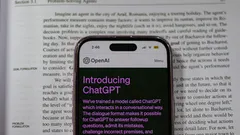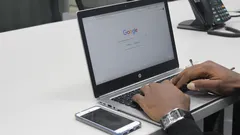109
9
4 minutes
Suggested Articles

How ChatGPT is changing memory and creativity in daily life
Does ChatGPT change how we think and remember? Find out how daily use of AI chatbots can impact memory, critical thinking, and creativity, plus clever tips to keep your mind sharp.

Tech enthusiasts discover how playful AI prompts reveal hidden security risks
AI & Everyday Tech

GPT-5 is about to redefine AI with game-changing human-like abilities
AI & Everyday Tech

ChatGPT takes command: How AI is reshaping spacecraft control
AI & Everyday Tech

OpenAI’s ChatGPT transforms homework with interactive AI learning mode
AI & Everyday Tech

Tech innovators embrace generative AI as OpenAI challenges Google with smarter search
AI & Everyday Tech

Unlock Your Productivity and Privacy With a Local AI Assistant on Your PC
AI & Everyday Tech

US users navigate risks as Grok sparks debate over AI chatbot free speech
AI & Everyday Tech

AI myths debunked: The real magic behind artificial intelligence revealed
AI & Everyday Tech

Generative AI Is Quietly Transforming Workflow Automation Across America
AI & Everyday Tech

Playing video games together strengthens relationships and sparks real connection
AI & Everyday Tech

US crypto pioneers transform bold risk into life-changing fortunes
AI & Everyday Tech

Tech leaders embrace waste-to-carbon solutions as Microsoft bets big on green AI
AI & Everyday Tech

Travelers and campers embrace portable backpack laundry tech for freedom and clean clothes anywhere
Gadgets & Reviews

Sleep experts champion a smart anti-snoring belt for restful nights and healthier mornings
Gadgets & Reviews

Drivers use Google Maps and Waze to avoid fines but risk safety trade-offs
AI & Everyday Tech

App lovers seize this week’s best free premium downloads before time runs out
Smartphones & Apps
 W3 CodeCraft
W3 CodeCraft

Comments